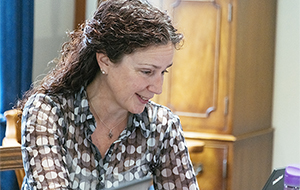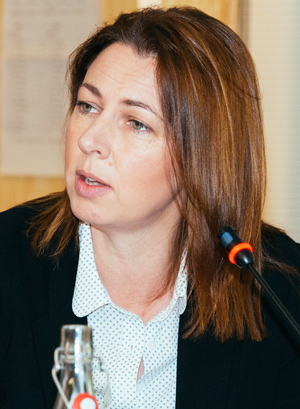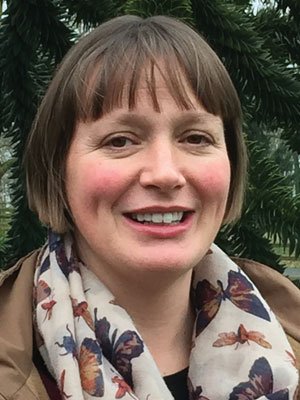-
-
- Council Members
- Role of Council Members
- Council meetings
- Council elections
- Previous election results
- Dr Louise Allum
- Dr Sam Bescoby
- Dr Andrew Clemence
- Dr Tshidi Gardiner
- Dr Reginald Godwin
- Paddy Gordon
- Dr Danielle Greenberg
- Dr Gerard Henry
- Dr Richard Hillman
- Dr Benjamin Kennedy
- Dr Tom Lonsdale
- Dr Darren Partridge
- Martin Peaty
- Alison Price
- Dr Peter Robinson
- Dr Jennifer Simmons
- Dr Sadie Spencer
- Dr Mary Thomas
- William Wilkinson
- Dr Lara Wilson
- Past-Presidents
-
-
-
-
-
- About extra-mural studies (EMS)
- EMS requirements
- Information for vet students
- Information for EMS providers
- Information for vet schools
- Temporary EMS requirements
- Practice by students - regulations
- Health and safety on EMS placements
- EMS contacts and further guidance
- Extra-mural studies fit for the future
-
-
- Code of Professional Conduct for Veterinary Surgeons
- Code of Professional Conduct for Veterinary Nurses
- Contact the Advice Team
- XL Bully dog ban
- 'Under care' - guidance
- Advice on Schedule 3
- Controlled Drugs Guidance – A to Z
- Dealing with Difficult Situations webinar recordings
- FAQs – Common medicines pitfalls
- FAQs – Routine veterinary practice and clinical veterinary research
- FAQs – Advertising of practice names
- GDPR – RCVS information and Q&As
Scoping the future for veterinary nursing
At this year’s British Small Animal Veterinary Association (BSAVA) Congress in April the RCVS and the BVNA worked together to organise a stream of talks related to the VN Futures project. The overall aim was to give both vets and vet nurses a sense of the project’s current priorities, how it is meeting the aims set out in the VN Futures Report and Action Plan, and upcoming work and events.
 Here Jill Macdonald RVN (pictured), the RCVS VN Futures Project Manager who joined the College at the beginning of this year, gives an overview of the talks.
Here Jill Macdonald RVN (pictured), the RCVS VN Futures Project Manager who joined the College at the beginning of this year, gives an overview of the talks.
Wellbeing
The VN Futures stream started with a presentation from Laura Black RVN entitled ‘A VN’s guide to wellbeing’ during which she highlighted the processes and advantages of an ‘open’ workplace culture and the use of significant event audit.
Whilst maybe not immediately considered as having an impact on wellbeing; ensuring that significant events are dealt with using a ‘no-blame culture’ approach, considering what happened and improvements that can be made, and then ensuring this is communicated with staff; promotes openness about mistakes, and crucially, procedures and protocols could be put in place to minimise the risk of them happening again
Laura also looked at the relationship between good quality sleep and wellbeing and also asked the audience how many of them worked in practices where a clear wellbeing policy was in place. I observed that only around three people raised their hand so it struck me that this is an area of practice life that can be improved.
I know that the Mind Matters Initiative and the Society of Practising Veterinary Surgeons are doing excellent work in this area via the Wellbeing Awards and we will consider how we can help promote and add value to this from a veterinary nursing point of view.
Practice Standards Scheme
 Liz Cox, Senior Vice-Chair of VN Council and RCVS Council member, presented a ‘VN’s guide to the Practice Standards Scheme’, acknowledging that veterinary nurses play a crucial role in administering and preparing for PSS accreditation and award visits.
Liz Cox, Senior Vice-Chair of VN Council and RCVS Council member, presented a ‘VN’s guide to the Practice Standards Scheme’, acknowledging that veterinary nurses play a crucial role in administering and preparing for PSS accreditation and award visits.
Liz (pictured), who had previously served on the Practice Standards Group, had a fantastic idea that veterinary nurses should proactively ‘take ownership’ of a key aspect of the PSS and ‘make it their own’ – for example, whether that be client service, infection control or clinical governance.
As Liz pointed out, delegation of this very important work to veterinary nurses can have a positive impact on their feelings of autonomy, levels of responsibility and job satisfaction and encourage them to take their learning and development in different directions.
Schedule 3
The next presentation was from my colleague Julie Dugmore RVN, the RCVS Director of Veterinary Nursing, who gave a presentation on Schedule 3 and delegation to a very busy room. On the plus side, this means that nurses want to understand more about Schedule 3 and how it works in practice, but may also demonstrate that there is still uncertainty regarding its application.
Julie went through some of the key concepts around delegation and the most important passages in Schedule 3, the Code of Professional Conduct and its supporting guidance. She also highlighted some of the procedures that can definitely be delegated to VNs under Schedule 3 (eg 2nd vaccinations, maintenance & monitoring of anaesthesia and blood sampling) and those which definitely cannot (eg castrations, spays and extracting teeth using instruments).
Towards the end of the session it was flagged up that we have developed a series of case studies to help both vets and VNs navigate Schedule 3 in practice and that more were in development – as well as a handy flowchart for both vets and VNs which, once published, will help them make decisions about what can and can’t be delegated.
Advanced Practitioner Status
 The final presentation was from Susan Howarth RVN (pictured), VN Council member and Chair of the Veterinary Nurse Education Committee, who gave an update on the VN Futures project’s work towards establishing an ‘Advanced Veterinary Nurse Practitioner’ status.
The final presentation was from Susan Howarth RVN (pictured), VN Council member and Chair of the Veterinary Nurse Education Committee, who gave an update on the VN Futures project’s work towards establishing an ‘Advanced Veterinary Nurse Practitioner’ status.
The first step towards creating this, as identified by the VN Futures project, has been to develop a new set of advanced qualifications and last year, the College consulted on a new Post-Registration Qualification Framework, with two new qualifications covering the further and higher education routes.
Susan outlined the key differences with the previous Diploma in Advanced Veterinary Nursing – including the greater scope to develop qualifications within a designated area of interest, the fact it’s a slightly less onerous academic qualification, and the fact the courses are Certificates rather than Diplomas.
Susan said that the intention was to launch the Certificates this year and that the Advanced Veterinary Nurse Practitioner status would be developed in conjunction with the development of the two courses.
Overall conclusions
It was great to see so much engagement from veterinary nurses in areas such as Schedule 3 and Advanced Veterinary Nursing and, if there was one disappointing aspect, it was the fact that there were probably not enough vets in attendance.
Though the focus of the presentations was on the role of the veterinary nurse – the information given was very much relevant to vets as the people who manage and delegate to VNs and who also have a role in their training and development. We will have a think how, in future, we can better market these events to all of the practice team.
The very last thing to say is that – excitingly – we have both a dedicated VN Futures website and e-newsletter in development – so keep an eye out on this website for future announcements on the progress of these.
April 2019